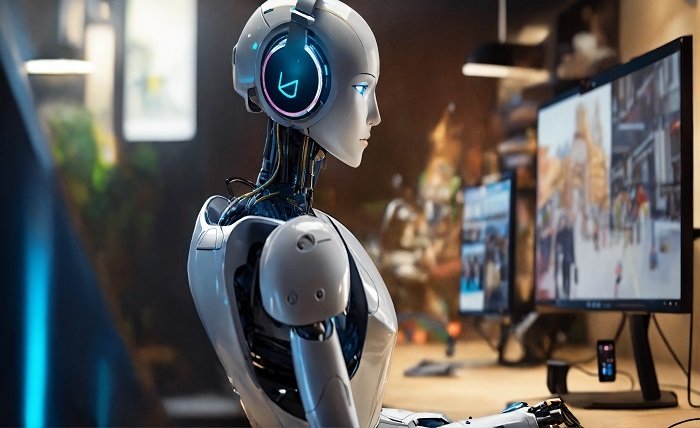Travelers today have more options than ever before. From boutique hotels to all-inclusive resorts, from weekend getaways to multi-city adventures, the sheer volume of choices can overwhelm even the most seasoned wanderer. Every time a traveler opens their browser, they are met with a flood of options, reviews, and deals. The question for hospitality brands is simple: how do you capture attention when potential guests are scrolling endlessly, comparing prices, and debating destinations?
The answer lies in AI ads. By merging hospitality marketing with cutting-edge artificial intelligence, brands can turn passive browsers into confirmed bookings.
Standing Out in a Sea of Options
Traditional advertising in the travel industry has always relied on a broad-stroke approach. Banner ads, generic social media campaigns, and email blasts may generate visibility, but they often fail to resonate with individual travelers. A traveler looking for a romantic getaway may see the same ad for a family-friendly resort. Someone searching for a budget-friendly option may be shown luxury suites they cannot afford.
Generic campaigns lead to low engagement, wasted ad spend, and missed opportunities. In a world where travelers make split-second decisions, failing to deliver relevant and timely offers means losing potential guests to competitors who understand personalization.
This is where AI ads change the game.
Predicting Travel Intent and Personalizing Offers
AI ads are not just another marketing trend—they are a transformation in how hospitality brands reach their audience. With AI-driven advertising, brands can analyze browsing behavior, previous bookings, search queries, and even social media interactions to predict travel intent. This means understanding whether someone is planning a weekend escape, a family vacation, or a luxury experience months in advance.
Once intent is identified, AI ads can personalize offers for each traveler. Imagine a guest who often books boutique city hotels receiving a curated ad for a unique, off-the-beaten-path property in a nearby city. Or a business traveler who prefers certain airlines being nudged with last-minute flight and hotel packages. By making ads relevant and timely, AI dramatically increases the likelihood of conversion.

How AI Ads Transform Hospitality Marketing
Seasonal Offers Made Smarter
Instead of generic seasonal promotions, AI can target travelers who have historically booked during specific times of the year. For example, guests who visited tropical destinations in summer may receive personalized ads highlighting winter sun destinations. AI ensures that seasonal campaigns reach the right audience at the right time, increasing bookings while reducing wasted ad spend.
AI-Driven Destination Ads
AI can analyze trends to create hyper-relevant destination ads. For instance, if a traveler is browsing luxury resorts in Bali, AI can serve ads for nearby activities, spa packages, or beachfront dining experiences. These ads feel like personalized recommendations rather than intrusive marketing, encouraging travelers to act immediately.The past is never dead. It’s not even past. History will be kind to me for I intend to write it. A lie can travel halfway around the world while the truth is putting on its shoes.
Upselling Luxury Experiences
Upselling is no longer a one-size-fits-all approach. With AI, hospitality brands can identify which guests are more likely to invest in premium experiences. For example, a guest booking a standard room may be nudged with a limited-time offer for a suite upgrade, private dining experience, or guided tour. By predicting guest preferences, AI ads turn upsells into delightful opportunities rather than pushy sales tactics.
Last-Minute Booking Nudges
AI excels at timing. It can identify travelers who have shown interest but haven’t completed a booking. These users can receive personalized nudges just when they are most likely to convert. A weekend getaway ad sent Friday morning to a traveler browsing hotels on Thursday night can make the difference between a booked room and an abandoned search.
Success Stories
Consider a boutique hotel chain that struggled to fill rooms during off-peak seasons. By implementing AI ads through Quickads, they could identify travelers who previously booked weekend stays but hadn’t visited recently. Personalized ads featuring unique experiences, local attractions, and limited-time discounts led to a 25 percent increase in bookings within two months.
Similarly, a luxury resort used AI-driven ads to upsell private dining experiences to guests who booked premium suites. The result was not only higher revenue per booking but also enhanced guest satisfaction, as the offers felt tailored and relevant.
The Future of Hospitality Marketing
AI ads are reshaping the hospitality landscape. Travelers now expect personalized experiences, and brands that fail to deliver risk falling behind. By predicting intent, personalizing offers, and delivering timely nudges, AI ensures that every marketing dollar contributes to meaningful engagement.

The future is clear: hospitality marketing without AI ads is like a traveler without a map. Possible, but far less efficient and rewarding. Brands that embrace AI will not only see increased bookings but also foster loyalty, repeat visits, and memorable experiences that guests are eager to share.
Call to Action
Hospitality brands that want to turn browsers into bookings cannot afford to ignore AI ads. Quickads provides the tools, insights, and automation to create campaigns that capture attention, delight travelers, and drive conversions. From boutique hotels to large resorts, Quickads helps brands reach the right audience, with the right message, at the right time.
Start transforming your hospitality marketing today. Let Quickads help you fill rooms, increase revenue, and deliver experiences that travelers will remember long after their stay. Because in a world full of choices, the right ad at the right moment makes all the difference.
